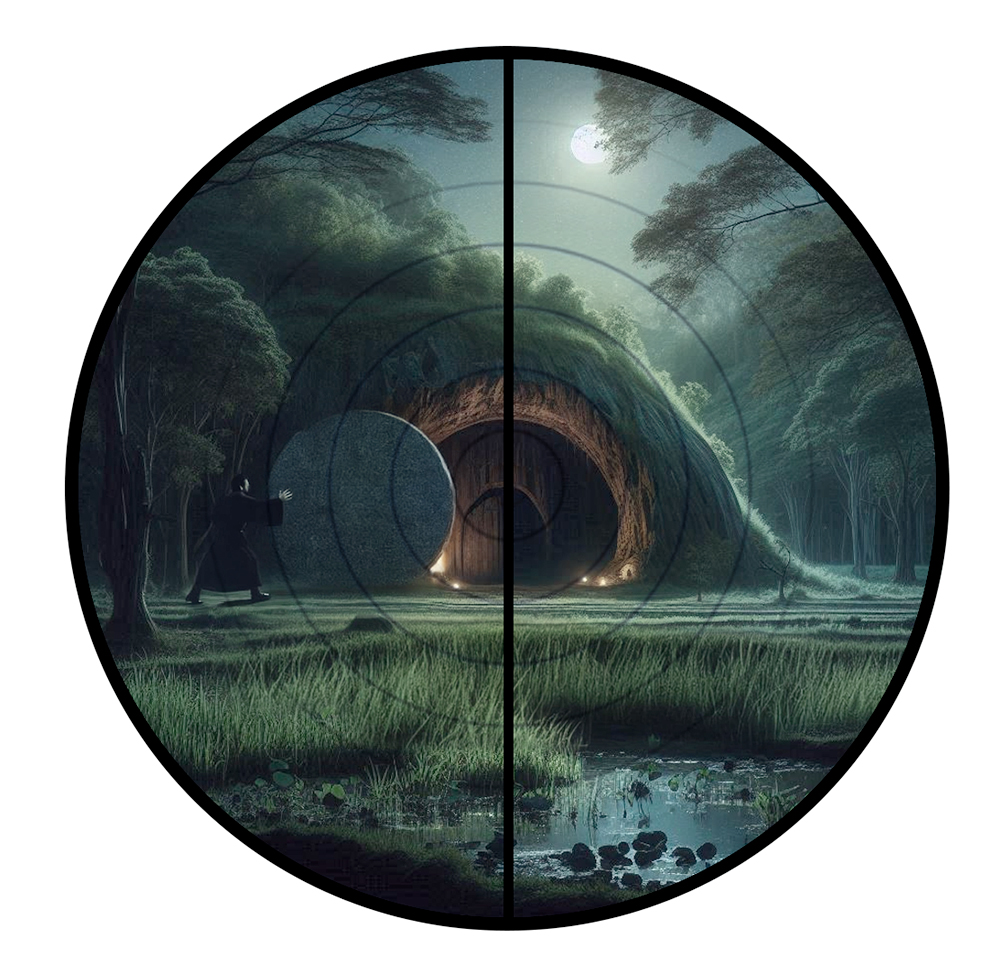 Matthew 27:60
Matthew 27:60

|
Strongs 2532
[list] Λογεῖον Perseus kai καὶ and Conj |
|
Strongs 5087
[list] Λογεῖον Perseus ethēken ἔθηκεν he placed V-AIA-3S |
|
Strongs 846
[list] Λογεῖον Perseus auto αὐτὸ self PPro-AN3S |
|
Strongs 1722
[list] Λογεῖον Perseus en ἐν within Prep |
|
Strongs 3588
[list] Λογεῖον Perseus tō τῷ the Art-DNS |
|
Strongs 2537
[list] Λογεῖον Perseus kainō καινῷ new Adj-DNS |
|
Strongs 846
[list] Λογεῖον Perseus autou αὐτοῦ himself PPro-GM3S |
|
Strongs 3419
[list] Λογεῖον Perseus mnēmeiō μνημείῳ memorial N-DNS |
|
Strongs 3739
[list] Λογεῖον Perseus ho ὃ which/whichever RelPro-ANS |
|
Strongs 2998
[list] Λογεῖον Perseus elatomēsen ἐλατόμησεν he had quarried V-AIA-3S |
|
Strongs 1722
[list] Λογεῖον Perseus en ἐν within Prep |
|
Strongs 3588
[list] Λογεῖον Perseus tē τῇ the Art-DFS |
|
Strongs 4073
[list] Λογεῖον Perseus petra πέτρᾳ rock N-DFS |
|
Strongs 2532
[list] Λογεῖον Perseus kai καὶ and Conj |
|
Strongs 4351
[list] Λογεῖον Perseus proskylisas προσκυλίσας he who has rolled V-APA-NMS |
|
Strongs 3037
[list] Λογεῖον Perseus lithon λίθον stone N-AMS |
|
Strongs 3173
[list] Λογεῖον Perseus megan μέγαν mega Adj-AMS |
|
Strongs 3588
[list] Λογεῖον Perseus tē τῇ the Art-DFS |
|
Strongs 2374
[list] Λογεῖον Perseus thyra θύρᾳ door N-DFS |
|
Strongs 3588
[list] Λογεῖον Perseus tou τοῦ the Art-GNS |
|
Strongs 3419
[list] Λογεῖον Perseus mnēmeiou μνημείου memorial N-GNS |
|
Strongs 565
[list] Λογεῖον Perseus apēlthen ἀπῆλθεν went away V-AIA-3S |
Joseph's "Chest": A New Self Placed within her
And he placed self within the New One of himself, a memorial, which he had quarried out56 within the Rock Cliff. And he who has rolled up a mega stone to the Door of the Memorial, went away.
"Is not in this way the word of myself like a fire? He Is he who whispers, and like a hammer he is breaking in pieces the rocky cliff!"
(Jeremiah 23:31 RBT)
"And Noble Princess, a woman of Exalted Father, has not given birth to himself. And to herself is a maidservant, a siege-enclosure ("Mitzrit"). And a name of herself is the Foreigner ("HaGar").
And Noble Princess is saying toward Exalted Father, "Behold! Please, He Is has shut in myself from childbirth! Come in, please! toward the Maidservant of myself! Perhaps I am being built up from out of herself!" And Exalted Father heard the Voice of Noble Princess."
And put it in his new tomb, which he quarried in the rock: and having rolled a great stone to the door of the tomb, he departed.
and laid it in his new tomb, which he had cut out in the rock. And rolling a great stone to the door of the tomb, he departed.
and laid it in his own new tomb, which he had cut in the rock. And he rolled a great stone to the entrance of the tomb and went away.
Footnotes
| 56 | Strongs #G2998 λᾱτομέω active form means "to quarry" and is used in various contexts:
Additionally, the term is used to mean "hew out a pit" as seen in the LXX (Septuagint) in Exodus 21.33 and Deuteronomy 6.11 (in passive form). |